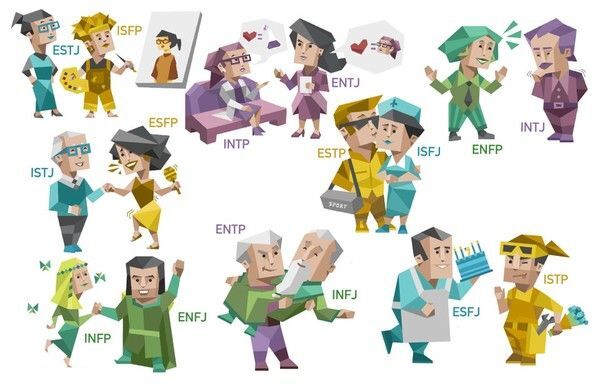this post was submitted on 28 Jul 2023
3 points (53.7% liked)
ADHD
11451 readers
162 users here now
A casual community for people with ADHD
Values:
Acceptance, Openness, Understanding, Equality, Reciprocity.
Rules:
- No abusive, derogatory, or offensive post/comments.
- No porn, gore, spam, or advertisements allowed.
- Do not request for donations.
- Do not link to other social media or paywalled content.
- Do not gatekeep or diagnose.
- Mark NSFW content accordingly.
- No racism, homophobia, sexism, ableism, or ageism.
- Respectful venting, including dealing with oppressive neurotypical culture, is okay.
- Discussing other neurological problems like autism, anxiety, ptsd, and brain injury are allowed.
- Discussions regarding medication are allowed as long as you are describing your own situation and not telling others what to do (only qualified medical practitioners can prescribe medication).
Encouraged:
- Funny memes.
- Welcoming and accepting attitudes.
- Questions on confusing situations.
- Seeking and sharing support.
- Engagement in our values.
Relevant Lemmy communities:
lemmy.world/c/adhd will happily promote other ND communities as long as said communities demonstrate that they share our values.
founded 2 years ago
MODERATORS
you are viewing a single comment's thread
view the rest of the comments
view the rest of the comments

MBTI (Myers-Briggs Type Indicator) is a popular personality assessment tool that is based on Carl Jung's theory of psychological types. It was developed by Isabel Briggs Myers and her mother, Katharine Cook Briggs. The MBTI classifies individuals into 16 different personality types, each represented by a combination of four dichotomous preferences. These preferences are as follows:
Extraversion (E) vs. Introversion (I): Reflects how individuals gain energy. Extraverts tend to be outgoing and energized by social interactions, while introverts are more reserved and recharge through solitude.
Sensing (S) vs. Intuition (N): Describes how individuals perceive information. Sensors focus on concrete, tangible details and the present moment, while intuitive types are more inclined to focus on patterns, possibilities, and the future.
Thinking (T) vs. Feeling (F): This preference pertains to how individuals make decisions. Thinkers tend to rely on logic and objective analysis, while feelers make decisions based on personal values and emotions.
Judging (J) vs. Perceiving (P): Refers to how individuals approach the external world. Judgers prefer structure, organization, and decisiveness, while perceivers are more flexible, open-ended, and adaptable.
To determine your MBTI type, you can take a self-assessment test, which is widely available online. The test will consist of a series of questions that will help you identify your preferences in each of the four dichotomies. Based on your answers, the test will generate a four-letter code representing your MBTI type. For example, you might end up with a type like "ISTJ" (Introverted, Sensing, Thinking, Judging) or "ENFP" (Extraverted, Intuitive, Feeling, Perceiving).
Link: 16p personality types
Finding your exact MBTI type can be tricky though... but it's important. I believe that cognition determines a lot of your personality, including information metabolism. You need to dig deeper to find the cognitive aspects, the tests only talk about superficial behavior, which is useful to understand yourself... but not if your behavior is causing you difficulty. Understanding the reasons for the behavior should yield insight. As for a scientific base, Dario Nardi observed that the 16 personalities have a distinct eeg profile. It talked about learning styles, which was interesting to me since studies are difficult for me. While tips are nice, understand how you process information is more useful... so that you don't have to learn things the hard way.
ADHD has a distinct footprint when you look at the qEEG (Quantitative Electroencephalogram). Was in the research phase last time I read about it, but I don't think it's used for diagnostic purposes atm.
To generalize, for hyperactive types, the eeg scan is like a christmas tree. For inattentive types, the eeg scan is inactive in certain areas (prefrontal cortex... )
My personal opinion is that the Myers-Briggs types are just convenient boxes that people are willing to put themselves into. More scientific than astrological signs but general enough that one can identify.